I love horror movies. I used to be terrified of them and the terror would fester inside me to the point where my nightmares would extend to my waking life and I’m pretty sure I would hallucinate whatever fearful villains I was unwisely allowed to watch, years 5-12. But it was also how I learned to lucid dream (only in nightmares) to wake myself up, so that is a pretty cool skill to have.
And then I grew up and watched every single scary thing that terrified me as a child as a form of unguided immersion therapy. And you know what? It worked! First on the list was this truly shlocky 1993 supernatural horror Warlock: The Armageddon (It has a 0% on Rotten Tomatoes, so). Then It, The Poltergeist, Hellraiser, Day of the Dead, The Thing, Nightmare On Elm Street… basically, all of them. Maybe like 15 years ago, a roommate and I binged every single Saw film in order. I think there were six at the time.
“Conquering” these fears, or rather desensitizing myself to cinematic gore, and thus nullifying their grip of terror on me, felt like a lifetime achievement — so much so, that I’m now drawn to horror in ways that many people are drawn to low-stakes thrills like fucking around and finding out.
When it comes to well-known horror tropes, the most enduring one is a product of the most snoozy genre (to me), slasher flicks: the Final Girl. She’s basically the inverse of the Disney Princess (pretty in a “doesn’t know it” kind of way, usually brunette, always with the wispy bangs, always wearing a light blue top for some reason). She’s the last, sole survivor of a (usually) homicidal, freakishly hard-to-kill, stabby guy in a mask. He can also be a monstrous non-human creature that preys on humans — usually the slutty ones first, then the ones filled with more arrogance than wit, and eventually, the virtuous ones who sacrifice themselves for the one virginal-presenting femme who ends up killing said creature after long exposition nuance. The hierarchy is always the same.

I recently rewatched one of my favorites, The Cabin In The Woods. Sigourney Weaver as the HBIC of the sacrificial youth group operation spells it out as plainly as it’s ever been said: “The virgin’s death is optional, but the point is she has to suffer. She may live or die, but if she dies, it has to be last.”
Slasher flicks bore me in the way that true crime bores me because a) it’s just some dude, b) all of these scenarios can be dealt with through human measures, and c) It’s seriously like one guy! And one guy can certainly be deadly but he possesses the same fatal flaw of mortality as his victims. Just like hit him with your car or something? Put him on fire?? Idk, it all seems so preventable. When it’s something supernatural, inhuman, and mysteriously ancient, the element of control is lost — which is what’s really terrifying to me. If you don’t know what you’re dealing with, and you can’t put enough distance between yourself and the possibly unkillable sinister thing, then you are shit outta luck. And it might not just be death that’s the worst case scenario! To be killed is one thing, but to be trapped in some creepy alternate dimension for eternity seems like a much more harrowing fate. Perspective.
But what horror does best is reflect our own cultural anxieties back to us in ways that offer catharsis or caution. And we (the royal we) are especially anxious about young women and their bodies in particular. So much of young women’s fates are determined by their projection of sexual availability as well as their rejection of it (cinematically as well as IRL). The Final Girl trope makes clear that the dangers of being a young woman are informed by our cultural distaste for sexuality, overt femininity, and a fetish for women’s weakness. She’s an ambassador for the women we deem worthy of protecting. And even then, it’s conditional. Only through horrific suffering can she earn enough resilience (usually through adopting “masculine” behaviors of violence) to keep her life. And once she does (survive), that’s it! End of story! Nothing to speak of the PTSD or ensuing grief. She suffers, she sorts it out herself, and then she goes about her life just so grateful to be alive — or so we’re to believe in the black void after the credits roll.
And this is all evolving now, along with our growing fascination with horror — but with increasingly more complex individuals, the majority of whom remain young women. And that’s interesting to me as someone who is aging out of that demo but is no less susceptible to the same dangers as them. I mean, hypothetically. That’s why I have a no sex in a creepy cabin rule. Or in the woods. Or in an abandoned building. Also don’t marry into a rich family obsessed with board games. And don’t go on a group spelunking trip when the fragile friendship dynamic is held together solely by an absence of secrets of betrayal being revealed. Minding your own business is a survival skill. I have my superstitions and they’ve served me well.
In looking for other sides of the spectrum, I listened to this episode of the It’s Been A Minute podcast, featuring Gretchen Felker-Martin who wrote one of the few novels that commanded my full attention span last year, Manhunt. Women as villains in horror are often old, sub- or superhuman, and harbor a vendetta around sexual grief, whether it’s rejection, heartbreak, or trauma. It could be a kind of projection of the final girl’s future. It’s as if the revenge genre got Frankensteined — our fears around aging, our complicated relationships with mothers, and our cultural desexualization of the elderly manifest into a grief with no outlet but violence.
What the hag provides is a sublimation of our fear of aging - first, our own aging, the idea that we will continue on but mired in a body that is physically failing us. And we'll have to reconcile our personhood, which is continuous throughout our lives.
I think more generally, there's also a tremendous fear of an undesirable woman with sexual agency, the idea that people who control the sexual economy could be subject to the whims of someone who is assumed to have no value in that economy. I think, culturally, we're very afraid of women coming back for their pound of flesh.
The rest of the episode is great, it’s called The new "final girl" in horror; plus, who's afraid of a horny hag? Listen to it if that’s your thing.
Anyway. This is all just an excuse to share some of my favorite horror films, hehe:
(In no particular order)
Martyrs (2008): This is five chili peppers of gore—fair wanting. It’s French revenge horror at its most, most twisted, and does not follow any kind of redeemable format. (I do not recommend watching the American re-make. It is dumb.)
Death Becomes Her (1992): This is more comedy than horror, even if you think about the “what if they remade this but scarier” alternative, which would be actually really, really creepy…
Evil Dead (2013): Speaking of actually scary remakes, this one takes the campy original and removes the Hehe to fully concentrate on the Ahhh! of it all. Honestly, one of my favorite remakes.
The Cabin In The Woods (2011): As mentioned above, I love a self-referential, cheeky horror film. And this one delivers clever quips as well as jump-scares equally.
Thirst (2009): This movie has everything: vampires, priests, psychotic Cinderella types, revenge, tragedy, flying. An honestly underrated Park Chan-Wook film about a priest who becomes a vampire after a medical blood transfusion gone awry, and must juggle living as a predator of the night with staying true to his god job.
Let The Right One In (2008): More vampire puppy love, but with Swedish kids.
Jennifer’s Body (2009): Obviously.
The Craft (1996): OBVIOUSLY.
Hereditary (2018): Truly creepy and unsettling. Like, I can’t even really tell you what happened but the building sense of dread is way too. In fact, the more plot is revealed, the more you’re like “Wait, wut??” But I will watch Toni Colette in anything.
Dead Set (2008): This British mini-series is a zombie outbreak genre with the twist of taking place in a fictional season of Big Brother, wherein the cast has no idea there is an outbreak in the real world outside of the house.
The Haunting Of Hill House (2018): Such a gripping miniseries about family dynamics, grief, the ghosts we carry with us, and the ghosts we become. The Haunting of Bly Manner, also from Mike Flanagan, is equally as emotionally compelling and spooky, and also more queer.
Anyway, I hope you are having a lovely Halloween and you got all the good candy. But if not, tomorrow is when all the Halloween candy goes on sale ;)





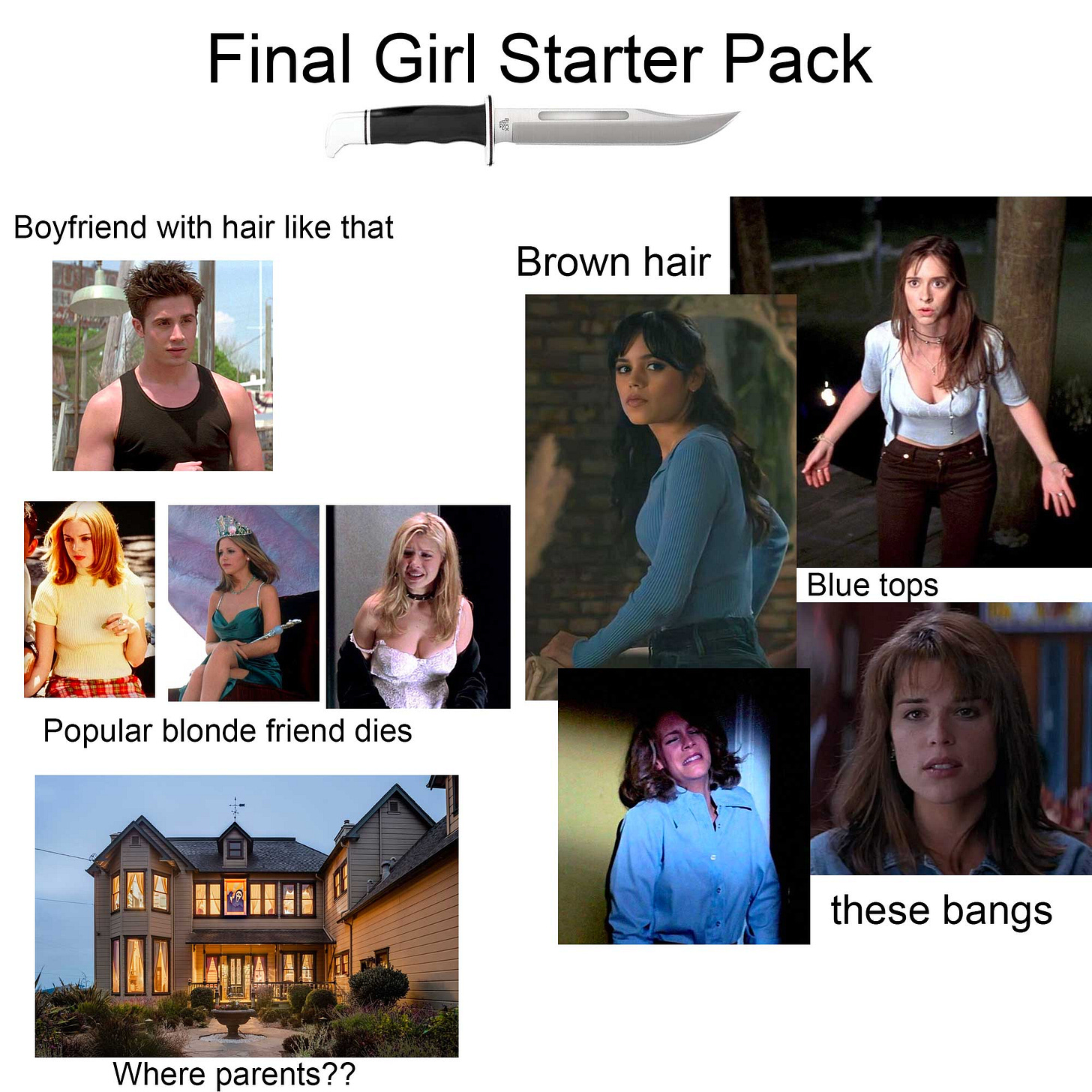
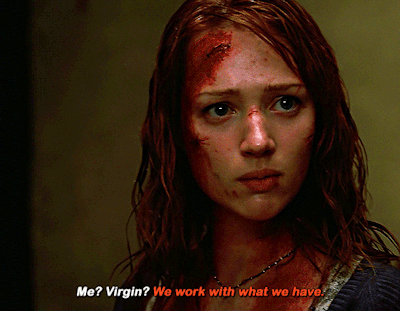

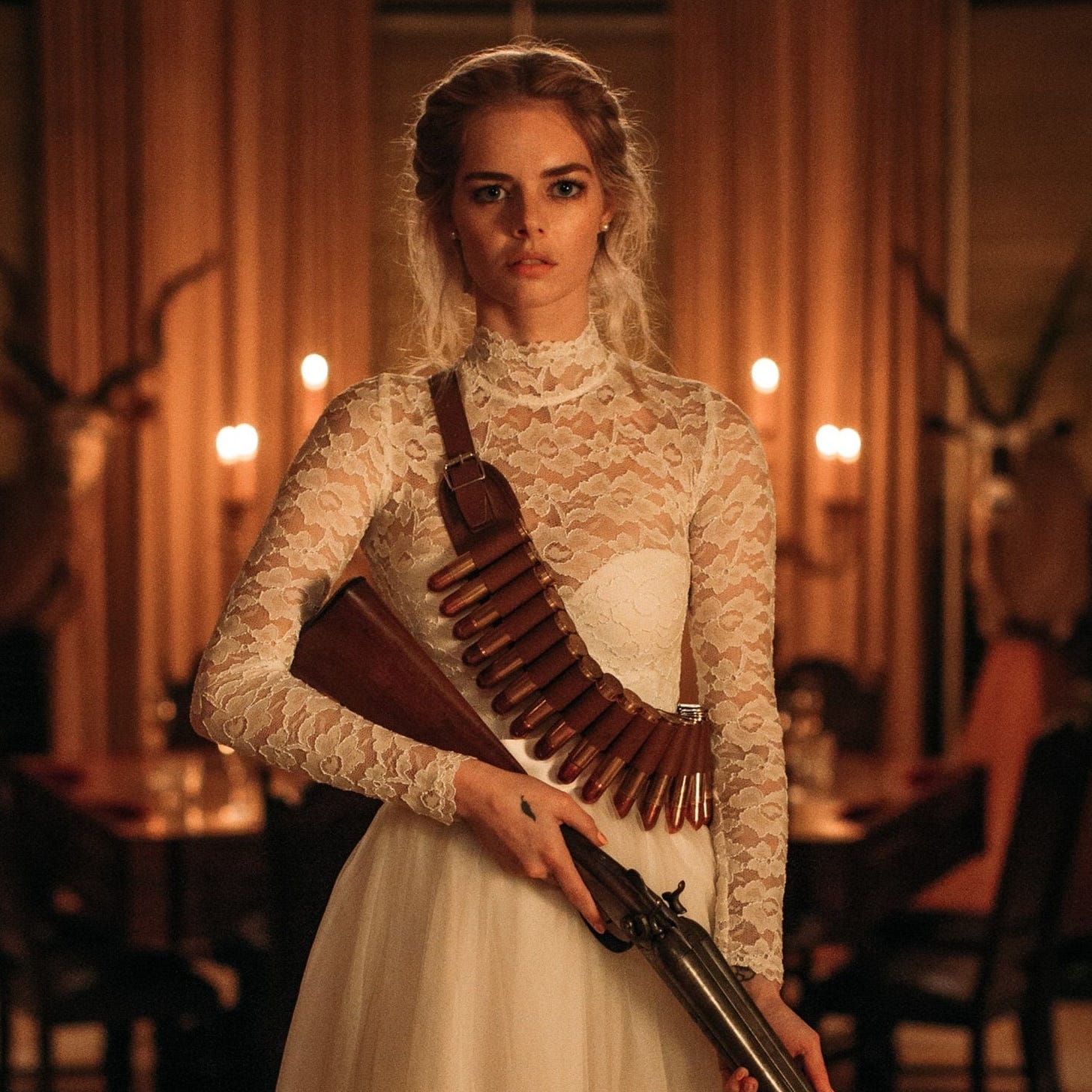
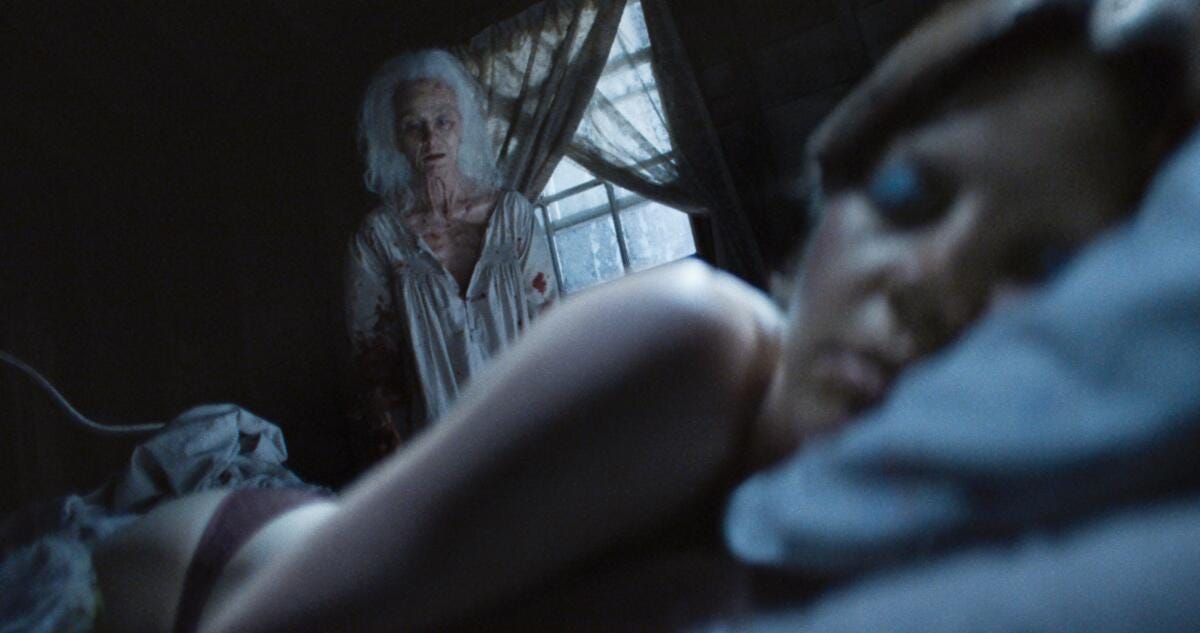
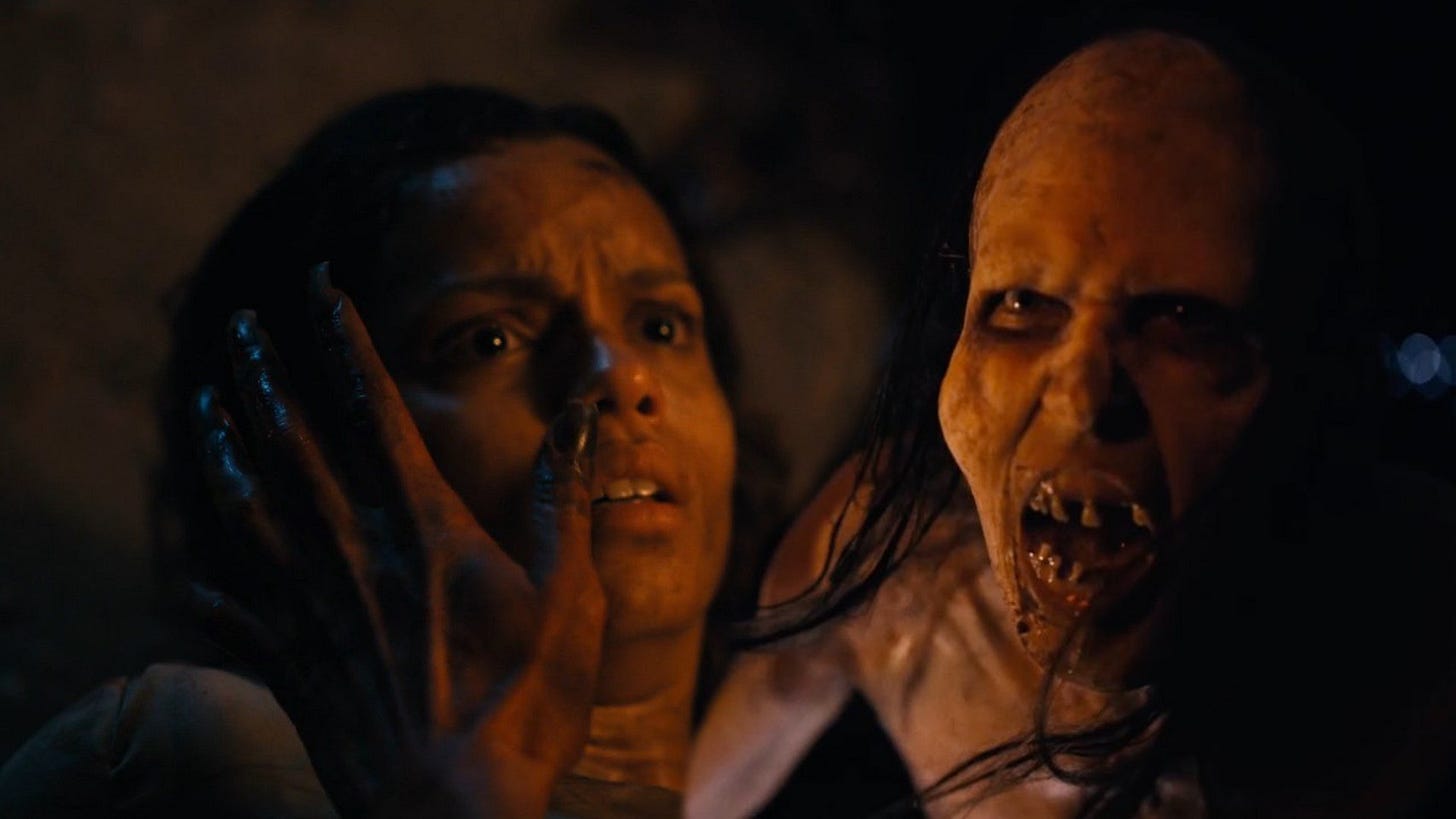
Love this, love your list, only one from my own list missing on yours is the Babadook.